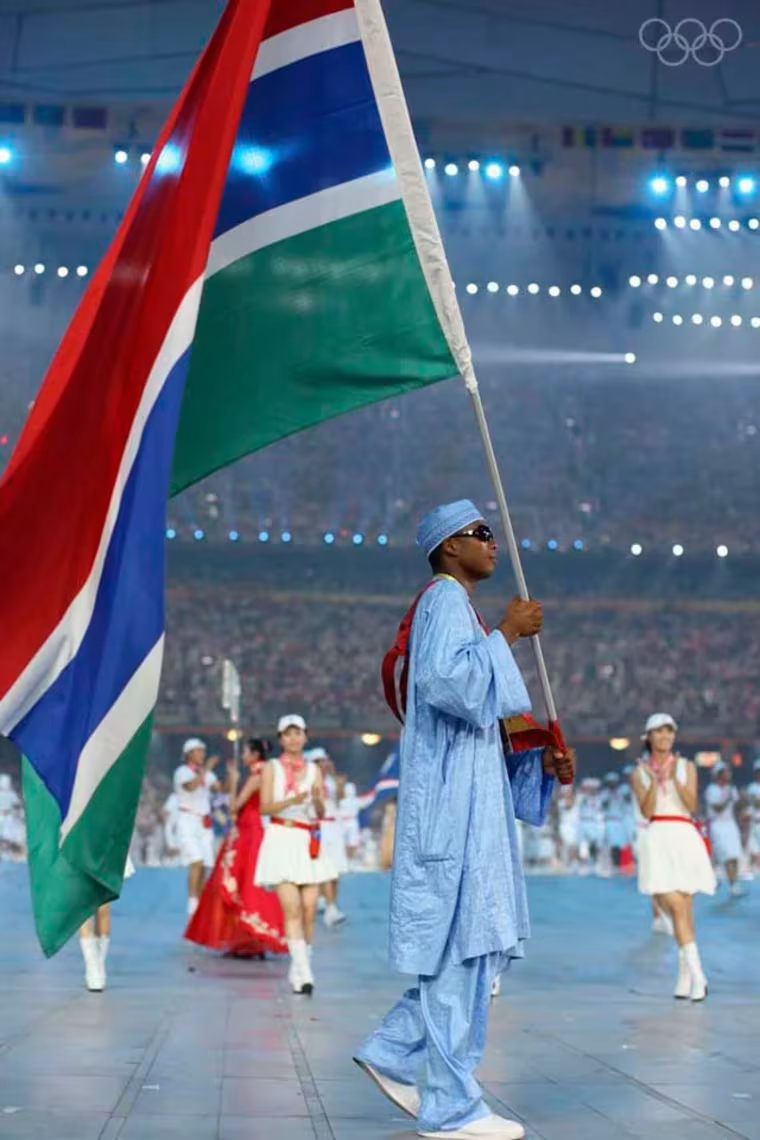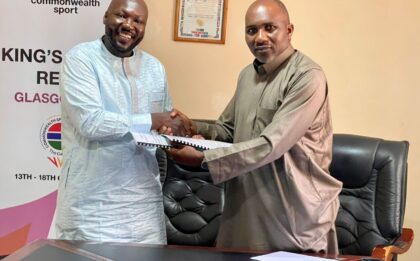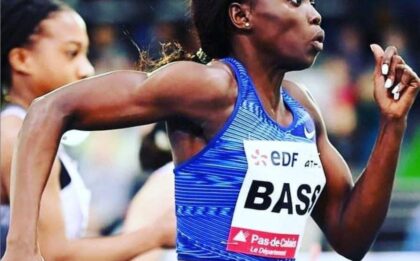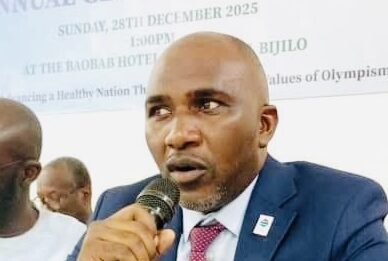The Gambia National Olympic Committee (GNOC) was established in 1972 and gained recognition from the International Olympic Committee (IOC) in 1976. Initially, The Gambia boycotted the first two Olympics it was eligible to participate in: the 1976 Montreal Games, in solidarity against apartheid in South Africa, and the 1980 Moscow Games, in protest against the USSR's invasion of Afghanistan in 1979.
Olympic Debut and Participation
1984 Los Angeles Summer Olympics
The Gambia made its Olympic debut at the 1984 Summer Olympics in Los Angeles with a delegation of ten athletes (six men and four women), all runners. Amie N'Dow was notable for progressing to the quarter-finals of the women's 200 meters, the only Gambian to advance past the first heats.
1988 Seoul Summer Olympics
The Gambia sent six athletes to Seoul: three runners (two men and one woman) and three male wrestlers. Dawda Jallow, the flag bearer, reached the quarter-finals in the men's 400 meters.
1992 Barcelona Summer Olympics
The all-male Gambian delegation of five athletes, consisting solely of runners, participated, including a men's 4 × 100 meters relay team.
1996 Atlanta Summer Olympics
The delegation increased to nine athletes, including a single female athlete, Adama Njie, and a long jumper, Ousman Sallah. Dawda Jallow carried the flag for a third consecutive time and became the only Gambian to compete in four Olympic Games.
2000 Sydney Summer Olympics
The Gambia sent two athletes, Adama Njie and Pa Mamadou Gai. Njie served as the country's first female flag bearer.
2004 Athens Summer Olympics
The delegation remained small, with Adama Njie returning for her third Olympics and joined by Jaysuma Saidy Ndure, the flag bearer. Ndure reached the quarter-finals in 100 meters and 200 meters but later switched nationalities to compete for Norway.
2008 Beijing Summer Olympics
Three athletes represented The Gambia, including its first Olympic boxer, Badou Jack, the flag bearer. Jack lost to India's Vijender Singh in the opening round, and the two runners, Suwaibou Sanneh and Fatou Tiyana, did not advance past the initial heats.
2012 London Summer Olympics
The delegation comprised two track and field athletes, Suwaibou Sanneh and Saruba Colley. Colley did not advance past the first round of the women's 100 meters, but Sanneh set a national record of 10.18 seconds in the men's 100-meter semi-finals.
2016 Rio Summer Olympics
The largest delegation since 1996 saw The Gambia send athletes across more than two sports for the first time. Adama Jammeh and Gina Bass competed in the 200-meter events, while Faye Njie (judo) and Pap Jonga (swimming) made history as the first Gambians in their respective sports.
2020 Tokyo Summer Olympics
The Games, postponed to 2021 due to the COVID-19 pandemic, marked The Gambia's tenth consecutive appearance since 1984. Five athletes from the country participated in track and field, judo, and swimming.
Upcoming Participation
2024 Paris Summer Olympics
The Gambia is set to compete in its eleventh consecutive Summer Olympics. The GNOC has designated Ebrima Jawara, President of the Gambia Golf Association, as the chef de mission. Gina Mariam Bass will participate in her third consecutive Olympic Games. For the first time, The Gambia will have a taekwondo athlete, Alasan Ann, who qualified for Paris 2024 after winning the semifinal in the above 80 kg class at the 2024 African Qualification Tournament in Dakar, Senegal. The Gambia will send her largest ever contingent to the games as per the Olympic qualifications’ standards. Other athletes at Paris Games will be Faye Njie from Judo, swimmers Ousman Jobe and Aminata Barrow from swimmer etc.
Summary
Throughout its Olympic history, The Gambia has showcased a steady presence and determination, gradually expanding its participation across different sports. The GNOC continues to strive for more remarkable achievements and representation in future Games.




